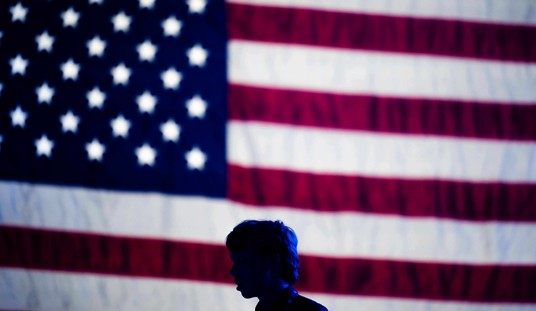Yesterday, both Ed and AP provided some coverage and commentary on the “autopsy” of the GOP following the 2012 election by the RNC and Chairman Priebus’s plans to try to set the situation to rights. Obviously, this caused quite a stir amongst the base, which the media took great joy in wringing its collective hands over.
John Brabender, Santorum’s chief adviser, said the reforms would favor the moneyed candidates.
“While I commend Chairman Priebus for taking important steps to remedy Republicans’ recent election failures, I am troubled by the possibility of a condensed presidential primary process which undoubtedly gives an advantage to establishment backed candidates and the wealthiest candidates,” said Brabender.
Brabender was hardly alone, and there was a great gnashing of teeth and rending of garments among the faithful. But there are a couple of important points buried in here. Between Ed and AP’s commentary, I’d like to focus for the moment on the latter. I was put in mind of something that Priebus said on the Sunday morning circuit dealing with the difference between winning “the math war” and the “war for the heart.” I’d prefer to spend a moment looking at the latter, but Allahpundit did a very good job of covering the former, which bears repeating here for those who missed it.
Everyone understands the strategizing, right? I assume 90 percent of the readership does but here’s a quickie primer for that 10 percent that doesn’t watch the primaries closely. Caucuses favor candidates with intensely committed followers, even if their overall base of support is small. The caucus process takes much longer than simple ballot voting does so casual voters stay away while passionate supporters show up. That means overall turnout is way lower than in a primary, which in turn means that a dark horse candidate who lacks money and name recognition can pull a huge upset by mobilizing his fans.
No matter how bitter of a pill that may be to swallow, it has the ring of truth. But just looking at this in terms of hard math isn’t quite enough as I see it, since this will apparently be a bitterly fought bone of contention in the upcoming cycle. With that said…
During the primary process and debates (which Reince wants to shorten, as noted above) there were a number of candidates who were perfectly fitted for a caucus environment. Unfortunately, that’s all they were designed for. I watched the process roll out with some wry amusement, frequently posting a picture on Twitter of Bart Simpson standing before a chalk board writing over and over, I will not yell suck it when Mitt Romney wins the nomination. And there was a reason for that.
Many good friends were huge supporters of some of the more “fringe” candidates on stage at those debates. I don’t question their passion or their enthusiasm for a moment. They were sincere supporters. But as a few of us were pointing out time and time again, there was simply no way – zero, zilch, nada – that Michele Bachmann or Herman Cain or (God help us all) Donald Trump were ever going to be elected president. Yes, Mitt Romney lost, but let’s not fool ourselves here. Given the national temperature of the electorate, if we had put one of them on the ballot somehow, historians would be writing for the next century about the popular vote electoral landslide that Obama carried for his reelection. (The electoral college count likely wouldn’t have changed much, as there are still – for now – a given block of states who would have voted against Obama even if we’d nominated a rabid cocker spaniel with a bad case of mange.)
But the election was not just won in the center… though that’s vastly important to the numbers. You can make the claim that a certain percentage of the hard core, Right base didn’t turn out. The numbers support that. But there were a ton of Northeastern, Midwest and left coast Republicans who still voted for Mitt. And if you put up one of these other, caucus powered, outside candidates, you’d have lost them in the mix.
Further, the idea of reducing the number of debates – specifically because of these caucus powered candidates – works out as a net positive. To the point Priebus was making, as you wind your way through 23 debates, it just represents one opportunity after another for these candidates to drive the potentially viable ones further and further to the Right to try to keep up. This is great for conservative headlines, but leaves them increasingly vulnerable when one of them finally makes it to the general election. Also – and we shouldn’t have to argue about this very much – the moderators for the majority of these debates are there to actively dig up incendiary sound bites to discredit conservatives and fill up cable news air time. How many bites at that apple would you like to give them? How many times do you want all the candidates to get asked about rape and the Voting Rights Act and Social Security and all the rest of the Left wing headline drivers before enough is enough?
In the end, you can say all you want about the “low information” or “low motivation” or brain dead voters who won’t stand in nine groups in the church basement for six hours after dinner for a caucus. Insult them all you like, and point out how they aren’t “strong” enough to fight for their cause in a caucus. But they DO show up in a primary. And they show up in the general election. And that’s who you’ve got to convince on election day. If the message of these caucus powered candidates is truly viable they will thrive in a fair outing where all of the voters who show up in the general take part. Criticizing Priebus for pointing out some basic, if unpleasant, mathematical realities isn’t going to take back the White House any time soon.








Join the conversation as a VIP Member